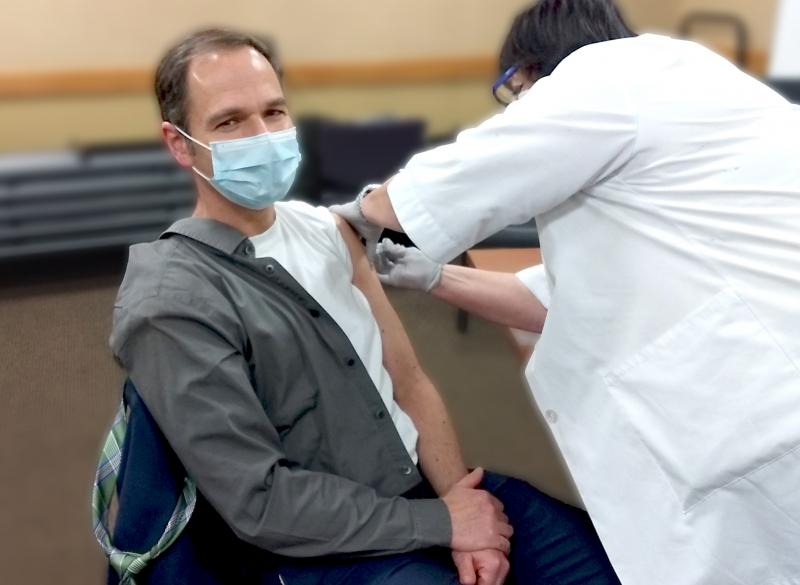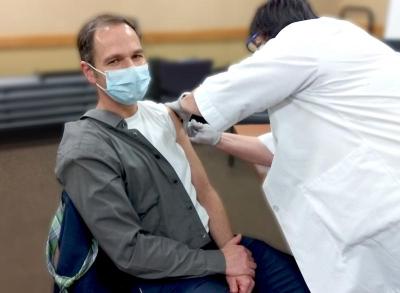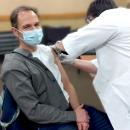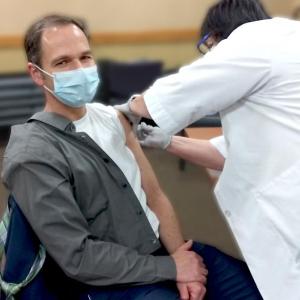Dartmouth neurosurgeon among first to get Covid vaccine
Story Location
United States
As the first doses of the new Covid-19 vaccine arrive at hospitals across the South Coast, one Dartmouth resident was among the first in the region to get the shot on Dec. 16.
Neurosurgeon Dr. Alvin Marcovici went under the needle at Charlton Memorial Hospital in Fall River as part of the first wave of front-line medical workers to receive the jab.
“Southcoast was fortunate enough to be among the first hospitals to get the vaccine, and they’re trying to give it to people who are at most risk,” he said.
Marcovici works in the emergency room and in critical care areas at Southcoast Health facilities as well as running a Dartmouth clinic on Hawthorne St.
Medical professionals will be receiving the first wave of doses according to a tiered system, with those who deal with Covid-19 patients and in emergency or urgent care settings getting it first.
According to Marcovici, the success in developing, approving, and distributing a vaccine just nine months after the disease was discovered is “one of the most heroic moments that I’ve seen.”
“This whole Covid pandemic, people always say ‘unprecedented,’ ‘historic,’ ‘never seen before’ — and sometimes people can get used to that,” he said. “In the case of this vaccine, they really mean it.”
“It’s a testament to what we can do if we put our mind to it,” he added.
As for the shot itself, Marcovici said it was “fine.”
“It’s just like the flu shot, or any other shot,” he said. “It’s quick, it’s easy.”
He noted that he is not protected from Covid-19 until he gets a second dose — his is due in the first week of January — so he will continue to wear a mask, avoid gatherings, and socially distance.
“This is a very dangerous time,” Marcovici stressed. “There’s a really big danger that people will let their guard down. It’s important to continue to take every precaution...Until everyone in this country has received two doses, we’re not safe.”
He added that it is “crucial” for young people to get the vaccine as well.
“Young people tend to take fewer precautions, take more risk...and be less inclined to get a vaccine,” he said. “[But] they are very likely to pass this to someone who can get very very sick.”































